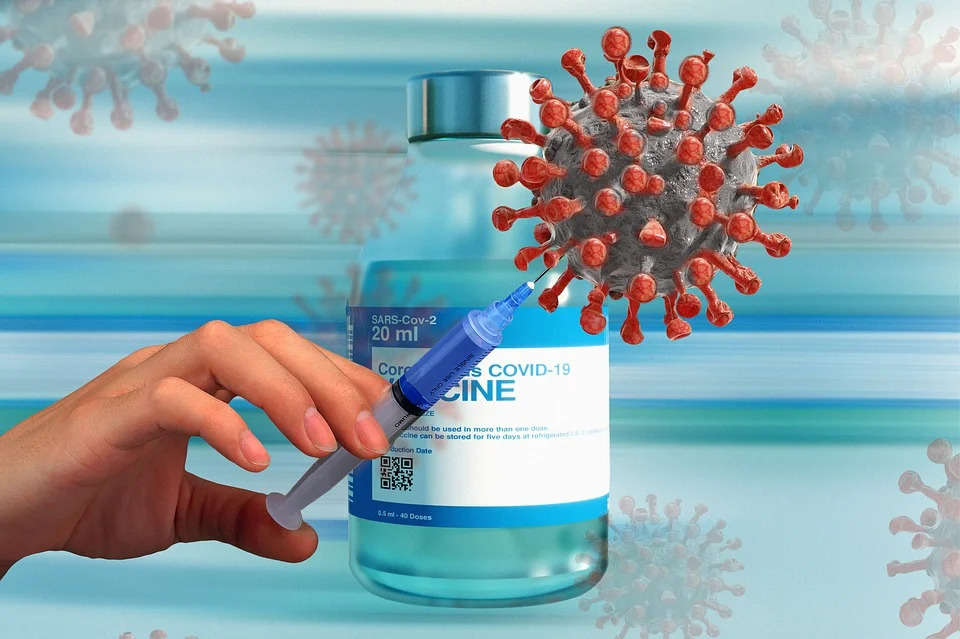How can COVID vaccine protect you - Explainer

The mass COVID vaccination drive for citizens above the age of 18 years was scheduled to be held on May 1. But due to the shortage of vaccines, the process will be delayed in most states in the country, including the Northeast.
Though most states would not be able to vaccinate their young citizens on the scheduled date, registration for the same, which started on April 28, will continue. You can register at www.cowin.gov.in.
WHAT ARE THESE VACCINES?
There are two vaccines available to the public - Bharat Biotech's "Covaxin," which is fully home-grown and the Serum Institute-Oxford University-AstraZeneca's "Covishield". ("Sputnik V" is soon to be made available).
PRODUCER
With a portfolio of 16 vaccines and exports to 123 countries, Bharat Biotech, a 24-year-old vaccine maker partnered with the National Institute of Virology and the Indian Council of Medical Research to develop Covaxin (India's first domestically developed COVID-19 vaccine). The Drugs Controller General of India (DCGI) gave permission "for restricted use" of the vaccine in an emergency on January 3, and trial results later showed the vaccine has an efficacy of 78 per cent.
Covishield has been developed by Oxford University in collaboration with AstraZeneca. In India, it is being manufactured by Pune-based Serum Institute of India (SII), the world's largest vaccine manufacturer.
HOW ARE THEY MADE?
Covaxin is an inactivated vaccine that works by teaching the immune system to make antibodies against the SARS-CoV-2 coronavirus. The antibodies attach to viral proteins, such as the so-called spike proteins that stud its surface, as per a report by The New York Times.
Covishield is based on the genetic instructions of the virus that is responsible for making spike proteins. The researchers added the gene for the coronavirus spike protein to another virus called "Adenovirus", which is a modified version of a chimpanzee adenovirus, known as ChAdOx1 or AZD1222.
Adenoviruses are common viruses that typically cause cold or flu-like symptoms. It can enter cells, but it can’t replicate inside them.
So, it has been modified to look more like coronavirus but it cannot cause any illness.
ALSO WATCH:
HOW DO THEY WORK?
Covaxin, which is made up of killed coronavirus, when administered is still recognisable by the immune cells. It prompts the immune system to make antibodies against the pandemic virus. Because the coronaviruses in Covaxin are dead, they can be injected into the arm without causing Covid-19.
When the Covishield is injected into a person’s arm, it elicits an immune response, prompting the immune system to start producing antibodies and pushes it to attack any coronavirus infection.
DOSAGE
The dosage for both the vaccines is two, and are administered two weeks apart.
While for Covaxin, it is recommended that the two doses are given four to six weeks apart, the second dose for Covishield vaccination can be delayed up to 6-8 weeks. There is data available for administration of the second dose of Covishield up to 12 weeks after the first dose from the overseas studies, as per the Serum Institute of India.
EFFICACY:
Covishield is considered to be a popular choice, being used by the maximum number of countries and Covaxin, on the other hand, is found to be more effective against the new variant.
Covaxin demonstrated an interim vaccine efficacy of 81 per cent in its phase III clinical trial. "The efficacy data against severe Covid-19 and asymptomatic infections is highly significant, as this helps reduce hospitalisations and disease transmission, respectively," said Bharat Biotech’s chairman and managing director Dr Krishna Ella.
There have also been clinical evidence that suggests that Covaxin could reduce severity and mortality risk by 100 per cent.
As per global reports, Phase III trials of Covishield showed an overall efficacy of 70 per cent. However, International clinical trials of the vaccine showed that when people were given a half dose followed by a full dose a month later, its effectiveness hit 90 per cent.
PRICE:
Covishield- ₹300 for the government, and ₹600 for private facilities.
Covaxin-₹400 for the Government, and ₹1200 for private hospitals and facilities.
PROTECTION AGAINST MUTANT STRAINS:
The B.1.617 variant also called "Indian strain" or "double mutant", prevalent largely in Maharashtra and Delhi, has three new spike protein mutations.
Two mutations—E484Q and L452R—are in the area important for antibody-based neutralisation and the third mutation—P681R—allows the virus to enter cells a little better.
According to a new study, both Covishield and Covaxin, have shown efficacy against the "Indian strain" of coronavirus.
"The effectiveness of the available vaccines on the B.1.617 variant of SARS-CoV2 suggests that post-vaccination, the infections are milder," said the Director of the Institute of Genomics and Integrative Biology (IGIB), Anurag Agrawal.
TNT-The Northeast Today is now on WhatsApp: CLICK HERE to receive more updates on your phone.
(Edited by Aparmita Das)

















